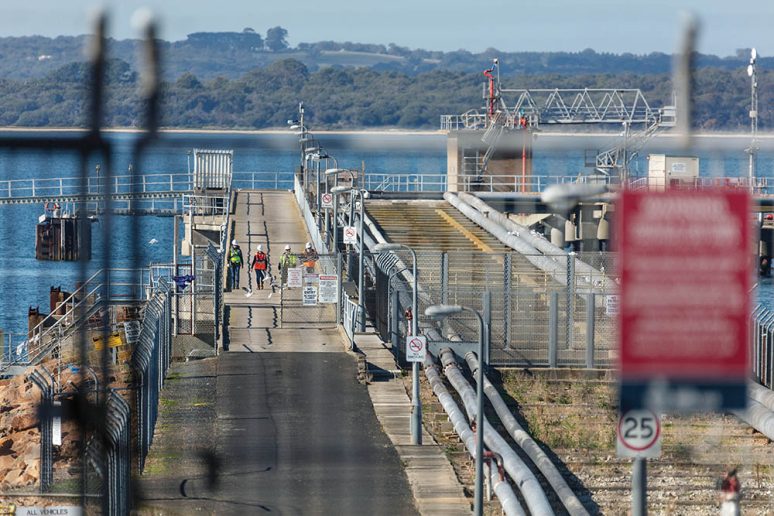By Kelly Parkinson
AGL’s Crib Point gas import jetty aims to help bring more affordable gas to Victoria, in a safe and environmentally responsible way.
From the start, we’ve been clear. We will follow all assessment requirements that are asked of us by the Victorian government and all regulatory bodies.
AGL has always been comfortable being held to these standards.
Our sense of urgency on this project has always been driven by concern for security of supply of gas for the years ahead.
As with all AGL projects, we take community consultation seriously.
Since announcing Crib Point as the preferred site we’ve undertaken extensive consultation with the local community, which has included 26 public meetings.
We know from these meetings that one overriding concern is about the potential marine impacts from the regasification process – using seawater to warm the very cold LNG.
During this process the ship’s system, like a filtration system in a salt water swimming pool, produces a small amount of chlorine, being approximately 0.1 of a milligram a litre at the release point, from the seawater to keep the system clean.
Expert reports have demonstrated that when the water returns to Western Port it will break down to an undetectable level within 20 seconds.
In other words, the level of chlorine in the water that’s returned to the port would be significantly less than that allowed in our drinking water.
The seawater would also return to Western Port at about seven degrees cooler.
The expert reports also show that this will quickly mix back to within 0.3 degrees of the environment by the time it reaches the seabed. It will fully mix with the movements of the tide and is in line with daily temperature variations within Western Port.
What we have set out to do here is develop a project which has as little impact on the environment as possible. However, we understand that many in the community don’t consider that this is good enough.
While the expert reports show the chlorine breaks down very rapidly and the temperature differences quickly dissipate, we recognise this still concerns the community.
We fully recognise these concerns and the strongly held views about the unique environmental significance of Western Port.
The community have also made their concerns known to the government and they have been successful in making sure they are now assessed independently through an environmental effects statement (EES) process.
There is also the possibility of using the ship’s cargo to warm the gas and not use any seawater, but this would increase the greenhouse gas emissions, which are also an environmental concern.
We believe this project is particularly important for Australian businesses, which need affordable and secure energy supply.
Already, we’ve seen support from ten large commercial and industrial customers who have signed MoUs (memorandum of understanding) regarding offtake agreements.
If approved, the Crib Point LNG import jetty will be a safe and environmentally responsible project, making gas supply for Victorians more secure and bringing much needed competition to place downward pressure on gas prices.
*Kelly Parkinson is AGL’s senior manager, project engagement




